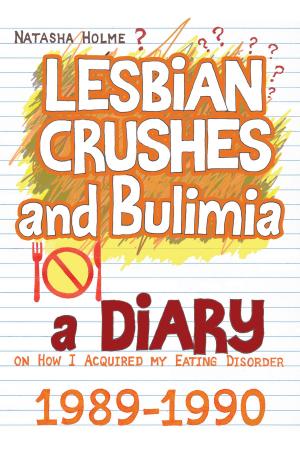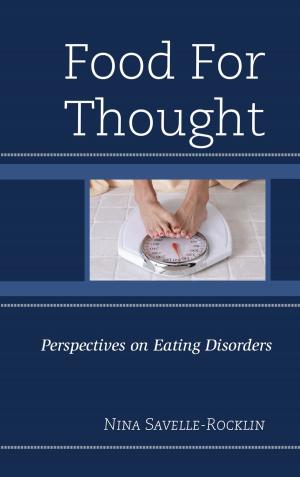Eat What You Love, Love What You Eat for Binge Eating
Mindful Eating Program for Healing Your Relationship with Food & Your Body
Nonfiction, Health & Well Being, Self Help, Mental Health, Eating Disorders| Author: | Michelle May M.D., Kari Anderson, DBH, LPC | ISBN: | 9781934076378 |
| Publisher: | Am I Hungry? Publishing | Publication: | January 15, 2014 |
| Imprint: | Language: | English |
| Author: | Michelle May M.D., Kari Anderson, DBH, LPC |
| ISBN: | 9781934076378 |
| Publisher: | Am I Hungry? Publishing |
| Publication: | January 15, 2014 |
| Imprint: | |
| Language: | English |
Do you have a secret? Are you distressed about your eating? Do you sometimes eat more food than most other people would eat under similar circumstances? Do you sometimes feel like you can’t stop eating, or can’t control how much, or what you’re eating? Do you eat large amounts of food even when you’re not hungry? Do you sometimes eat more rapidly than normal? Do you eat until you feel uncomfortably full? Do you eat alone because you’re embarrassed by how much you eat? Do you ever feel disgusted with yourself, depressed, or really guilty after you eat? These are symptoms of binge eating. Eat What You Love, Love What You Eat for Binge Eating was written for you. Some people call their problem with binge eating emotional eating, food addiction, or compulsive overeating. When binge eating occurs at least once a week on average for three months (without compensatory behaviors such as vomiting), it is called Binge Eating Disorder, or BED. If you think you may have BED, please consult with an eating disorder therapist for an assessment. If you struggle with binge eating or BED, you are not alone. BED is by far the most prevalent eating disorder. Three and a half percent of women and two percent of men suffer from Binge Eating Disorder during their lifetime. In comparison, anorexia and bulimia each affect 0.6% of the population. Despite its prevalence, BED remains cloaked in secrecy and shame. Less than half of its sufferers seek therapy for their eating disorder. However, 30% of those seeking weight loss treatments have BED. Weight cycling is also common because of alternating binge eating and restrictive dieting. Cultural weight stigma and internalized body dissatisfaction perpetuate the problem. However, it is important to note that not everyone who is overweight binges and not everyone who binges is overweight. Eat What You Love, Love What You Eat for Binge Eating offers a step-by-step process for self-discovery and healing your relationship with food and your body. You’ll learn new ways to manage the physical, emotional, and environmental stresses you encounter each day without bingeing. You’ll finally understand the reasons you binge and how to better address your needs. Instead of trying follow rigid rules created by experts, you’ll become the expert on you. You’ll relearn how to listen to your body to determine when, what, and how much you need to eat. Eating will become pleasurable again, free of bingeing or guilt. You’ll discover that you can enjoy food and nourish your body at the same time. More important, you will learn how to use your energy to care for yourself fully and live the vibrant life you crave. What is mindful eating—and how can it help? Mindful eating is an ancient mindfulness practice with profound modern applications. Mindfulness is simply awareness of the present moment without judgment. When you become aware of your physical state, your thoughts, your feelings, and your actions as they are in the here and now, you increase your ability to care for yourself instead of turning to food. People with binge eating have a tendency to engage in “dichotomous” thought patterns—all or nothing, black or white, good or bad—that become destructive when they make impulsive, automatic decisions about eating, relationships, and life management. Throughout Eat What You Love, Love What You Eat for Binge Eating, we introduce specific skills, strategies, and techniques to help you find the middle path or “the grey areas” in-between the extremes. Mindfulness is also effective for noticing the judgmental, critical thoughts that keep you stuck in painful patterns. A key aspect of this program is learning to cultivate a self-care voice to replace your ineffective thoughts and gently guide you toward decisions that create a bigger, more vibrant life.
Do you have a secret? Are you distressed about your eating? Do you sometimes eat more food than most other people would eat under similar circumstances? Do you sometimes feel like you can’t stop eating, or can’t control how much, or what you’re eating? Do you eat large amounts of food even when you’re not hungry? Do you sometimes eat more rapidly than normal? Do you eat until you feel uncomfortably full? Do you eat alone because you’re embarrassed by how much you eat? Do you ever feel disgusted with yourself, depressed, or really guilty after you eat? These are symptoms of binge eating. Eat What You Love, Love What You Eat for Binge Eating was written for you. Some people call their problem with binge eating emotional eating, food addiction, or compulsive overeating. When binge eating occurs at least once a week on average for three months (without compensatory behaviors such as vomiting), it is called Binge Eating Disorder, or BED. If you think you may have BED, please consult with an eating disorder therapist for an assessment. If you struggle with binge eating or BED, you are not alone. BED is by far the most prevalent eating disorder. Three and a half percent of women and two percent of men suffer from Binge Eating Disorder during their lifetime. In comparison, anorexia and bulimia each affect 0.6% of the population. Despite its prevalence, BED remains cloaked in secrecy and shame. Less than half of its sufferers seek therapy for their eating disorder. However, 30% of those seeking weight loss treatments have BED. Weight cycling is also common because of alternating binge eating and restrictive dieting. Cultural weight stigma and internalized body dissatisfaction perpetuate the problem. However, it is important to note that not everyone who is overweight binges and not everyone who binges is overweight. Eat What You Love, Love What You Eat for Binge Eating offers a step-by-step process for self-discovery and healing your relationship with food and your body. You’ll learn new ways to manage the physical, emotional, and environmental stresses you encounter each day without bingeing. You’ll finally understand the reasons you binge and how to better address your needs. Instead of trying follow rigid rules created by experts, you’ll become the expert on you. You’ll relearn how to listen to your body to determine when, what, and how much you need to eat. Eating will become pleasurable again, free of bingeing or guilt. You’ll discover that you can enjoy food and nourish your body at the same time. More important, you will learn how to use your energy to care for yourself fully and live the vibrant life you crave. What is mindful eating—and how can it help? Mindful eating is an ancient mindfulness practice with profound modern applications. Mindfulness is simply awareness of the present moment without judgment. When you become aware of your physical state, your thoughts, your feelings, and your actions as they are in the here and now, you increase your ability to care for yourself instead of turning to food. People with binge eating have a tendency to engage in “dichotomous” thought patterns—all or nothing, black or white, good or bad—that become destructive when they make impulsive, automatic decisions about eating, relationships, and life management. Throughout Eat What You Love, Love What You Eat for Binge Eating, we introduce specific skills, strategies, and techniques to help you find the middle path or “the grey areas” in-between the extremes. Mindfulness is also effective for noticing the judgmental, critical thoughts that keep you stuck in painful patterns. A key aspect of this program is learning to cultivate a self-care voice to replace your ineffective thoughts and gently guide you toward decisions that create a bigger, more vibrant life.















![Cover of the book Eating Disorders: Understanding Causes, Controversies, and Treatment [2 volumes] by Michelle May M.D., Kari Anderson, DBH, LPC](https://www.kuoky.com/images/2018/may/300x300/9781440853012-n7El_300x.jpg)